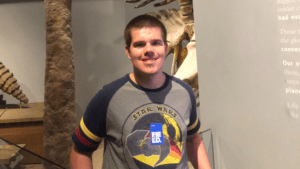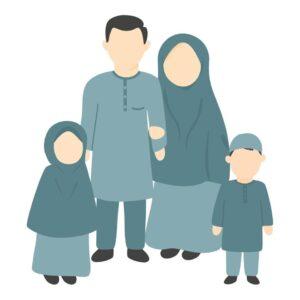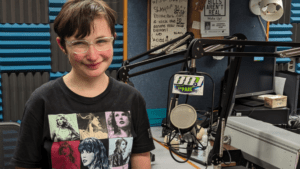Ohhh relationships. At the age of 34, I’ve had several relationships throughout my life that has included seven girlfriends. I’ve also had several breakups. When I talk to families with children on the spectrum this is usually one of the big subjects, but also one of the most sensitive. How does a child on the spectrum even go about having a relationship while many neurotypicals today, cannot? It’s a difficult road with no clear answer.
Looking back at my experiences, some of my main problems in relationships have been due to “social awkwardness.” This social awkwardness could be attributed to many factors, but for me it was always based on “small talk” and “mind blindness.” With small talk, many times (especially when I was younger) I couldn’t hold a conversation, making any type of interaction awkward in the sense of the silence and long pauses involved. The only way I would be able to keep a conversation going was to change the subject randomly to something that was of interest to me (such as basketball). This was hard because while I did have friends who play and like basketball, for instance, it’s not something you want to hear about 24/7. How do you make strides without having the capabilities of conversation?
Confidence, as well, became an underlying issue because of these tendencies. These moments, where I wouldn’t have anything to say made people think I was a shy person who wanted to be left by myself (which was never the case). Could you imagine a scenario where you wanted to be talked to, in many cases even loved, and you just didn’t know how to acknowledge it?
Mind blindness, which is typically known as the inability to develop an awareness of what another person is thinking, made for some difficult scenarios for me. The inability to do this, to “put myself in the shoes of another,” limited my understanding of others, and made it difficult to develop anything but basic friendships/relationships. People in today’s society are are very complex and reading them, not only by a relationship standpoint but to advance in life, whether its through school, employment, etc. is a necessary skill. These skills are even more important navigating dating during COVID-19. Being able to navigate dating during a pandemic has made it even more challenging although with things hopefully opening up soon there is hope. I’m still searching for that special someone but know she’s out there.
At nine, my doctor recommended against mainstreaming me in a public school because she said I would have never understand social cues and worried about me getting beat up. Granted, I survived those days, a testament to having developed coping mechanisms, splinter skills and/or growing up. The one thing I wish though, looking back, was that I found someone who understood what it was like. Whether it was an intimate relationship or just a friendship, someone who, on the spectrum knows exactly what I’m going through. It’s not the same case as others, where maybe you relate with someone because you both came out of the same background, for example.
Being on the spectrum, no one case is the same. Every case is different which means that you would always find something close but not exactly to what you are looking for. Especially on the college level, many students on the spectrum don’t go to college. This is where some of the difficulties lie for those on the spectrum who are having trouble with relationships in college. How do you approach it when you are the minority filled by a majority that may or may not be accepting of who you are?
I’m now today trying to help answer some of these questions as a dating coach for our neurodiverse community and several years ago writing a book about navigating autism & relationships called Autism and Falling in Love. I now actively engage the groups I work with as a professional speaker to consider hosting keynotes and breakouts on this topic of autism & dating as it often falls through the cracks.
Finally, whether you are on the spectrum or not, all relationships are hard work. Whether it is within the relationship or not, the best thing you can do for yourself is be who you are and to negate all the negative energy that may come your way. Yes, there is definitely a need to branch out and find what interests you have which can expand the pool of who you may be interested in. Ultimately, we all know the expression; there are many fish in the sea (but not quite as many if you are not looking).
This is where relationships begin.
Follow my journey on Facebook, my Facebook Fan Page, Tiktok, Youtube & Instagram,
My name is Kerry Magro, a professional speaker and best-selling author who is also on the autism spectrum that started the nonprofit KFM Making a Difference in 2011 to help students with autism receive scholarship aid to pursue a post-secondary education. Help support me so I can continue to help students with autism go to college by making a tax-deductible donation to our nonprofit here.














